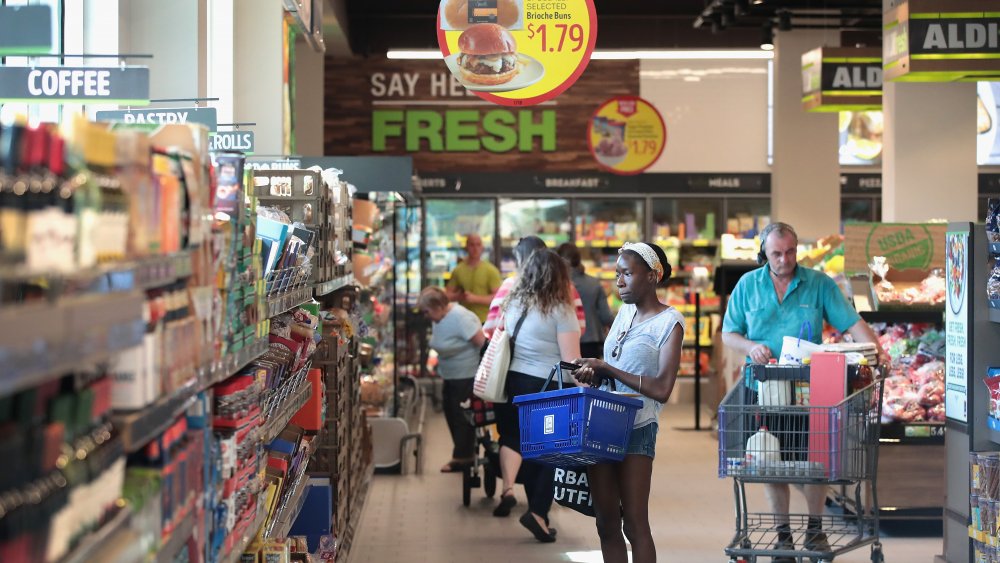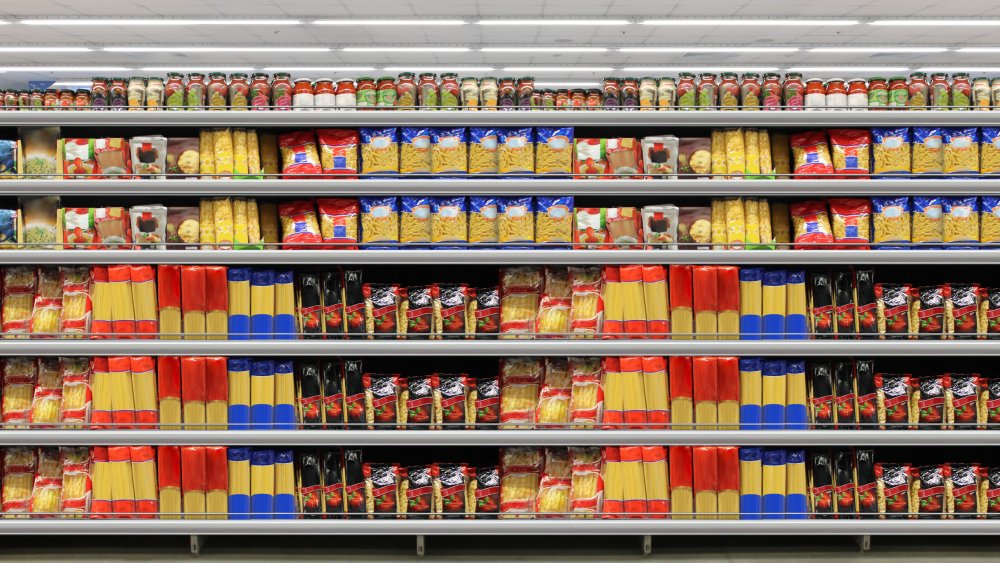Why Some Of Your Favorite Groceries Won't Be Making A Comeback
Once upon a time, IGA supermarkets carried an average of 40 different varieties of toilet paper; it now carries just four (via The Wall Street Journal). Progresso used to make 90 different kinds of canned soup (it has now cut half of that inventory), and Amy's Kitchen had an organic product line of 228 products — there are now just 71 (via Bloomberg). America's grocery suppliers may have come to the realization that consumers may not need a near-limitless variety of choices.
Thanks to the pandemic and problems with the supply chain, executives from America's food giants have had to move away from less efficient and less profitable products in order to focus on their core offerings. And it's not just happening at the grocery stores, because restaurants like IHOP and fast food companies like McDonald's have pared down their menus to offer a more basic selection — and have seen their service levels improve.
Fewer choices may equal a better shopping experience
As a result, variety in some grocery categories has fallen by as much as 30 percent — which seems to suit the companies just fine. PepsiCo told The Wall Street Journal that they expect to come out of the pandemic with 3 to 5 percent fewer products, because they're taking the opportunity to discontinue items that are either less popular, or are too difficult to produce.
While paring down the list of options might mean customers miss a few items (a lack of Amy's Roasted Vegetable Pizza was a nightmare for fans — but don't worry, it's coming back), it could end up being good in the long term. Limited choices also means less "analysis paralysis," which shoppers experience when they get to the supermarket, and literally thousands of choices are staring at you.
Lack of variety has driven consumers away in the past, but it might be the right move now
Australian retail expert from the Queensland University of Technology, Gary Mortimer, says, "Whether it's cars, groceries or hotels, if we go back to the 1950s or '60s there were very few brands and very little choice. The mindset was, if we give everyone a wide choice, that's a good thing. But studies have shown when you give consumers infinite choice, selection becomes problematic and cognitive stress increases" (via news.com.au). And more stress is the last thing we need right now!
Whether the American consumer can live with a more limited range is another matter altogether. Bloomberg reports on an attempt by Walmart in 2009 to launch an initiative called Project Impact. It turned out to be a very expensive flop because consumers who couldn't find their favorites just went elsewhere to shop. But given the success of chains like Aldi and Trader Joe's — both of which offer far fewer items than big box grocery chains — this could end up as more of a success this time around.


